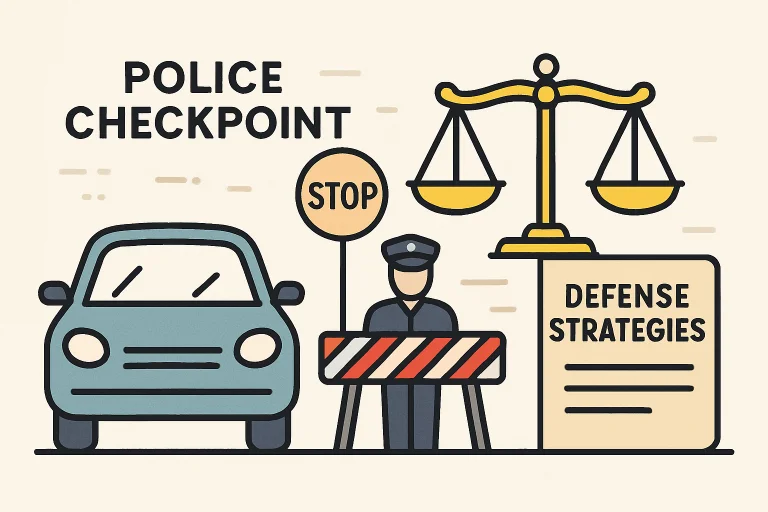Understanding the Realities of DUI and DWI Charges Today
Drunk driving remains a persistent legal and societal issue, with DUI (Driving Under the Influence) and DWI (Driving While Intoxicated) charges creating life-changing consequences for those accused. From driver’s license suspension and substantial financial penalties to the possibility of incarceration, the repercussions touch every aspect of a person’s life. The stakes are high, and even a first-time accusation can set off a complex and intimidating legal process.
Impaired driving accounts for a significant portion of highway fatalities each year—a fact that drives ongoing enforcement and public safety initiatives. Given these challenges, seeking trusted, experienced representation through resources like https://sloanlawkc.com/ is vital for anyone facing DUI or DWI charges.
Many accused individuals don’t realize how essential the early moments after an arrest can be. Each step, from vehicle stop to chemical testing, will be scrutinized as the facts unfold in court. Missteps, such as admitting guilt or refusing a lawful test, may limit your legal options later. On the other hand, knowing your rights and having competent counsel can be the difference between conviction and acquittal.
Due to variations in state laws and individual circumstances, the defense strategy that works best for one case may not apply to another. That’s why consulting with a skilled attorney and understanding the approaches most commonly employed can help those accused make informed, proactive decisions right from the start.
Common Defenses Against DUI and DWI Accusations
Challenging Test Accuracy
Breathalyzers and blood alcohol tests are widely relied upon by law enforcement, but they are not infallible. Calibration errors, improper sample handling, faulty equipment, or issues with test administration can all jeopardize the validity of results. Defense attorneys often scrutinize maintenance records and seek technical witnesses to show that test results may lack reliability. For more detailed strategies and examples of DUI/DWI defenses, see this guide from Nolo.
Questioning the Legality of the Stop
A cornerstone of many cases is whether the initial traffic stop was lawful. Officers must have reasonable suspicion to pull over a driver in the first place. If the defense shows the stop was arbitrary or not based on legal grounds, evidence gathered after the stop may become inadmissible, potentially resulting in dismissal of charges.
Early Steps: What to Do After an Arrest
- Stay Calm and Cooperative: It’s important not to escalate the situation. Comply with the officer’s basic instructions, avoiding confrontation or arguments.
- Exercise the Right to Remain Silent: Politely decline to answer questions that may be self-incriminating. Anything said can be used as evidence in court.
- Request Legal Counsel Promptly: Assert your right to consult with an attorney without delay. Early legal advice is critical to protecting your interests at every phase of your case.
Pre-Trial Motions and Evidence Suppression
Before any trial takes place, attorneys may file pre-trial motions. These are formal requests to the court to exclude specific evidence if it was obtained unlawfully or if procedural mistakes were made. For instance, if chemical tests were administered without proper consent or a warrant, a defense lawyer can argue for suppression of these results, significantly weakening the prosecution’s case.
Decisions on pre-trial motions have far-reaching consequences. In some cases, excluding a key piece of evidence, such as a blood alcohol test or the officer’s observations during the stop, can lead to a complete dismissal of charges.
Evaluating the Strength of the Prosecution’s Case
A good defense starts with a meticulous review of law enforcement’s actions and documentation. Every detail—from dashcam footage to written reports—should be checked for inconsistencies. If police fail to follow standard procedures, or if field sobriety tests were administered incorrectly or in challenging conditions, the credibility of the state’s case may decrease.
New research and legal updates often impact how courts assess such evidence.
Alternative Sentencing and Diversion Programs
For many first-time offenders, prosecutors and judges may offer alternatives to traditional sentencing, such as diversion programs or educational and rehabilitation classes. These are designed to address the root causes of impaired driving and may allow charges to be dropped or expunged once requirements are met. Participation in such programs often results in reduced penalties and helps to demonstrate a commitment to change.
Long-Term Consequences and Mitigation Strategies
While immediate penalties can be severe, the aftereffects of a DUI or DWI conviction don’t end with court fines or a period of license suspension. There are lasting repercussions, including a possible criminal record, increased insurance premiums, and challenges to finding or retaining employment. Following all legal advice, attending court-mandated programs, and demonstrating compliance can help limit these negative impacts over time..
Building a Support Network After a DUI or DWI Charge
Legal challenges are often compounded by emotional strain, making support from family, friends, or professional counselors especially important during and after a DUI or DWI case. Peer accountability groups or counseling services can not only aid with emotional recovery but may also fulfill court requirements and demonstrate a commitment to positive change.
Dealing with a DUI or DWI isn’t simply about winning a case in court—it’s about rebuilding on a personal and legal level. Drawing on both professional legal advice and a strong support system can put individuals in the best position to move forward after a difficult chapter.
Moving Forward After a DUI or DWI
Facing a DUI or DWI charge is undoubtedly challenging, touching legal, personal, and professional aspects of life. Understanding your rights, seeking early and competent legal counsel, and exploring all available defense strategies can significantly impact the outcome. Beyond the courtroom, participating in diversion programs, adhering to court requirements, and establishing a strong support network are crucial steps in mitigating long-term consequences and rebuilding trust with yourself and others. While the journey can be arduous, taking proactive, informed, and responsible actions empowers individuals to move forward and regain control over their lives.

